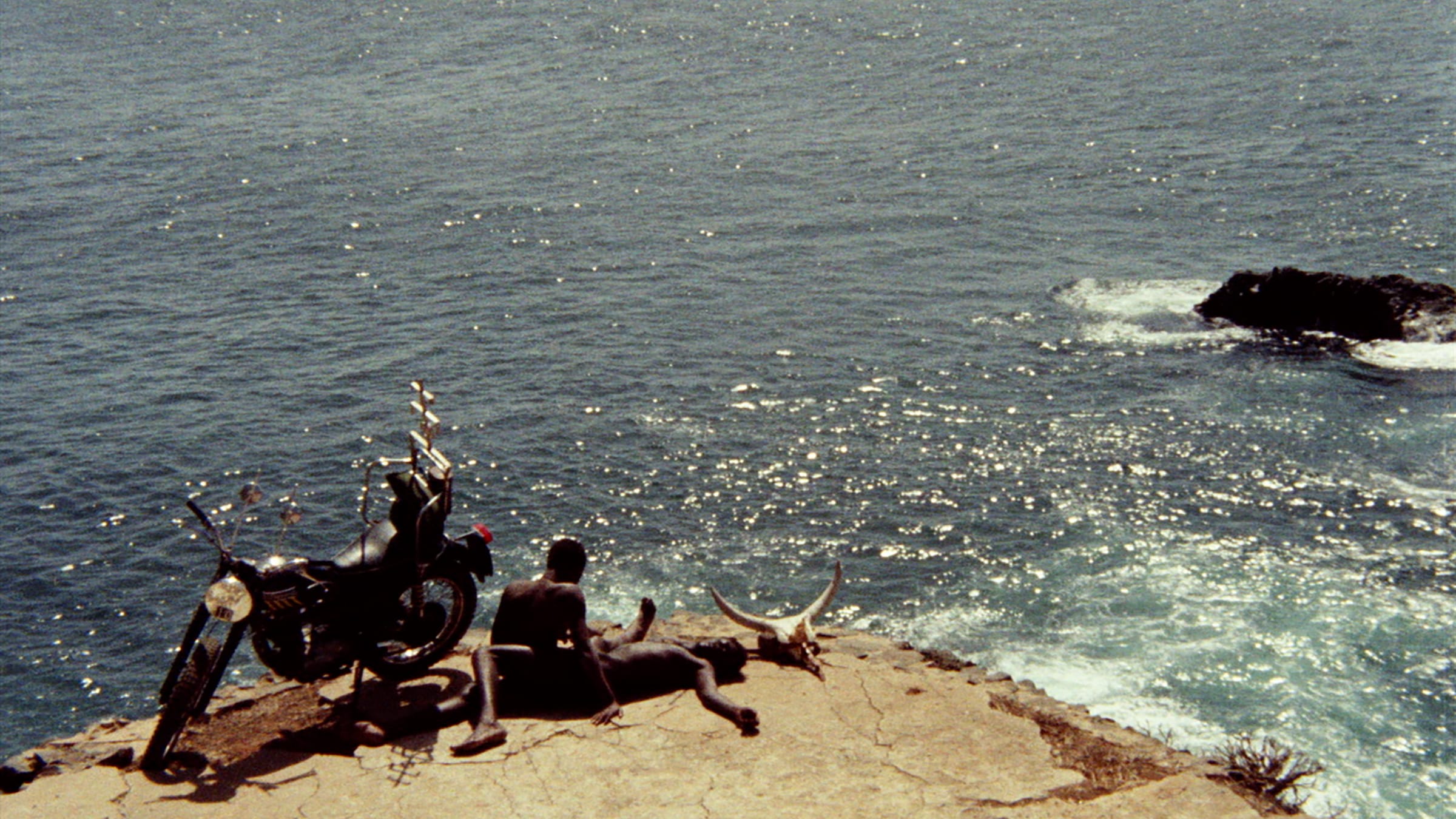RELATED ARTICLE
Touki bouki: Mambéty and Modernity
The Criterion Collection

“Oral tradition is a tradition of images. What is said is stronger than what is written; the word addresses itself to the imagination, not the ear. Imagination creates the image and the image creates cinema, so we are in direct lineage as cinema’s parents.”
Djibril Diop Mambéty
In 1996, the Cameroonian director Jean-Pierre Bekolo shared some precious moments in a Johannesburg bar with the legendary Senegalese filmmaker Djibril Diop Mambéty, who, less than two years later, would succumb to lung cancer at the age of just fifty-three. Bekolo captured the exchange in the delightful short film La grammaire de grand mère . . . (Grandma’s Grammar), in which Mambéty—at least one or two glasses of pinotage down by the film’s beginning—languidly unspools his filmmaking philosophy using some ingenious wordplay.
Between sips, Mambéty envisions his creative muse as the African Grandma (Grand-mère), “who knows how to tell stories like any grandmother under the moonlight” but who can sometimes shape-shift into Grammar (the homonymous-in-French Grammaire). For Mambéty, Grammaire refers to a set of filmmaking modes, practices, and themes, developed in the West, that have calcified into conventional, predictable storytelling. Mambéty explains that while Grandma’s spirit is always willing, sometimes she gets lazy and is compelled to tell stories in this uninspiring way. He complains to Grandma, who stirs once more inside of him and roars, “Go speak to Grammar! Go bash its face in, because all this space belongs to you, my grandson!”
“Grandma has asked me to always reinvent her stories,” Mambéty concludes, and “to never stop recreating [them], to ensure her perpetuity. That’s why I’ll never be a pro.” Serious yet playful, spiritual yet earthy, cryptic yet somehow crystal clear, Mambéty’s words in Bekolo’s vignette illuminate the spirit of a filmmaker who was committed to telling African stories in fresh ways, not least in his thunderbolt first feature, Touki bouki (1973), one of the most singular and striking debuts in the history of international cinema.


